
An ontology for digital rhetoric analysis.
RAOP - Rhetorical Annotation Ontology Project
Oxford, 30 September 2015
Tiziana Mancinelli
Aims:
- RAOP (Rhetorical Annotation Ontology Project) an example of a model for literary criticism
An ontology for digital rhetoric analysis.
SIS Biennial Conference2015
- From levels of annotation
to text-analysis and text representation

Digital Scholarly Editions and Text Analysis
An ontology for digital rhetoric analysis.
SIS Biennial Conference2015
How do we represent texts in a digital environment?
comprising multiple levels of:
annotations, text-analysis and text representation
An ontology for digital rhetoric analysis.
SIS Biennial Conference2015
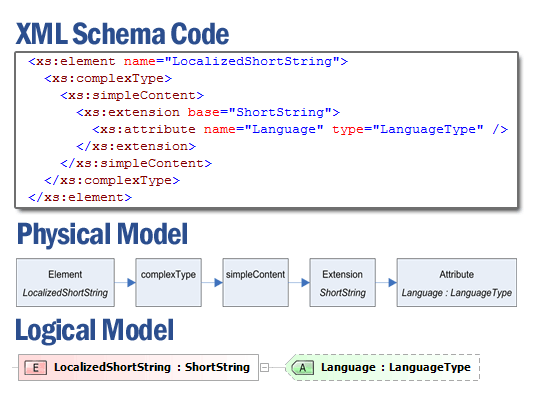
XML - TEI (Text Encoding Initiative)
Mark-up language structured in a hierarchical models
Semantic web and linked data
An ontology for digital rhetoric analysis.
SIS Biennial Conference2015
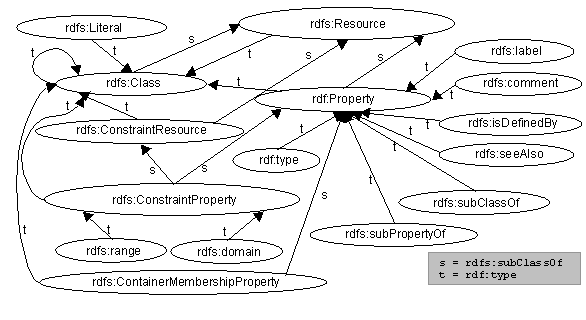
An ontology for digital rhetoric analysis.
SIS Biennial Conference2015

Digital Paradigm
textual layers
1) a source file
2) mark-up language and scripts
3) One more outputs
Cognitive Process
What is the text that is represented? What text do we read?
An ontology for digital rhetoric analysis.
SIS Biennial Conference2015

MODELLING
By modelling I mean the heuristic process of conctructing and manipulating models; a "model" I take to be either a rapresentation of something for purpose of study, or a design for realizing something new (McCarty, 2005, p. 24)
He then adds that models 'are by nature simplified and therefore fictional or idealized representations' of real objects.
The process of modelling is also an epistemological process: by modelling an object, an activity we come to know this object, and this activity.
Rhetorical Annotation Ontology Project
An ontology for digital rhetoric analysis.
SIS Biennial Conference2015
Theoretical model
Technical language
Figures of speech, or, as they are often called, rhetorical figures, are an artful deviation from the ordinary manner of speaking, used in order to impress an audience. According to Quintilian, a figure is “any device or pattern of language in which meaning is changed or enhanced”
The Resource Description Framework (RDF) is a family of World Wide Web Consortium (W3C) specifications originally designed as a metadata data model.
Ontology: a conceptual model – that consists of a set of concepts connected by relations describing a domain of interest
An ontology for digital rhetoric analysis.
SIS Biennial Conference2015
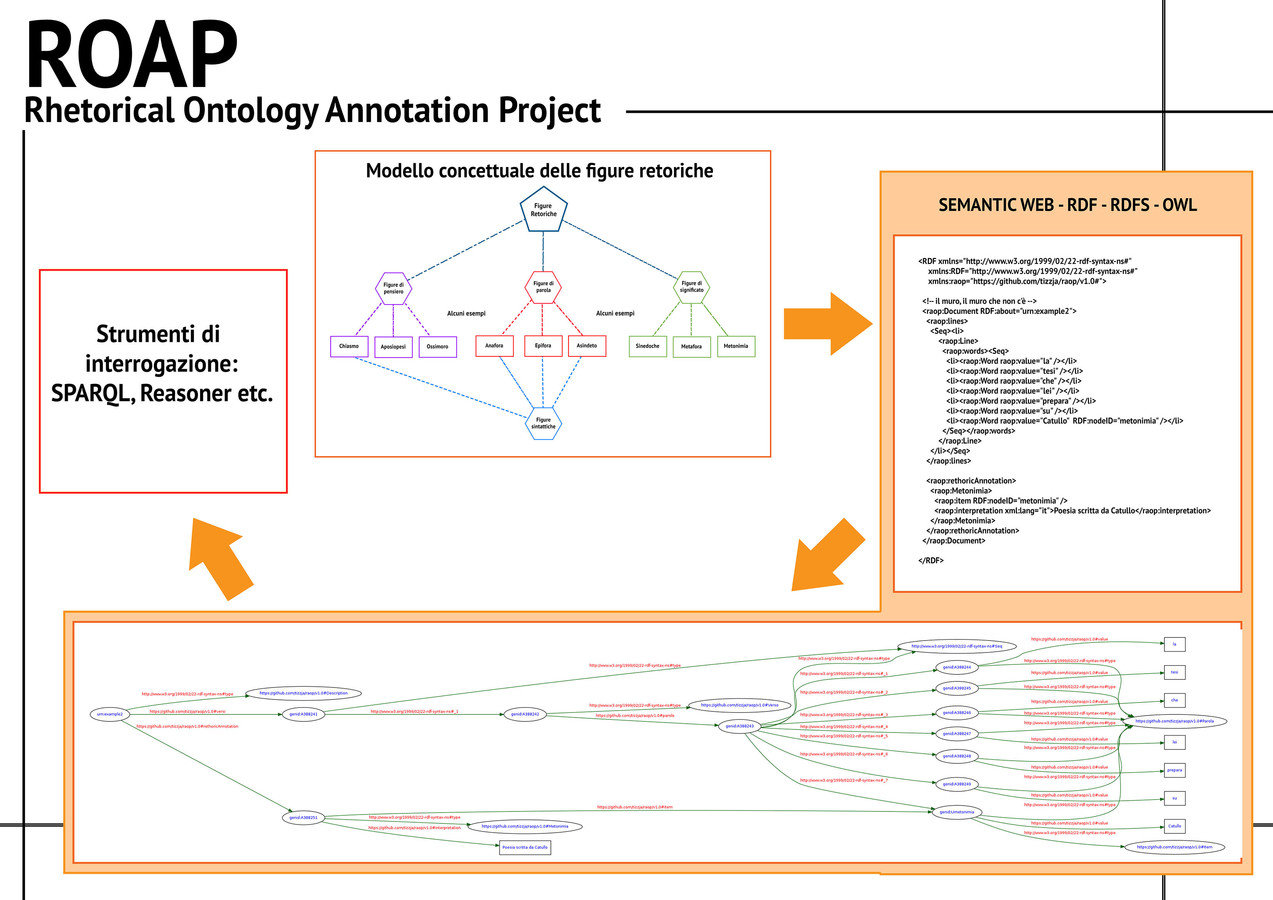
An ontology for digital rhetoric analysis.
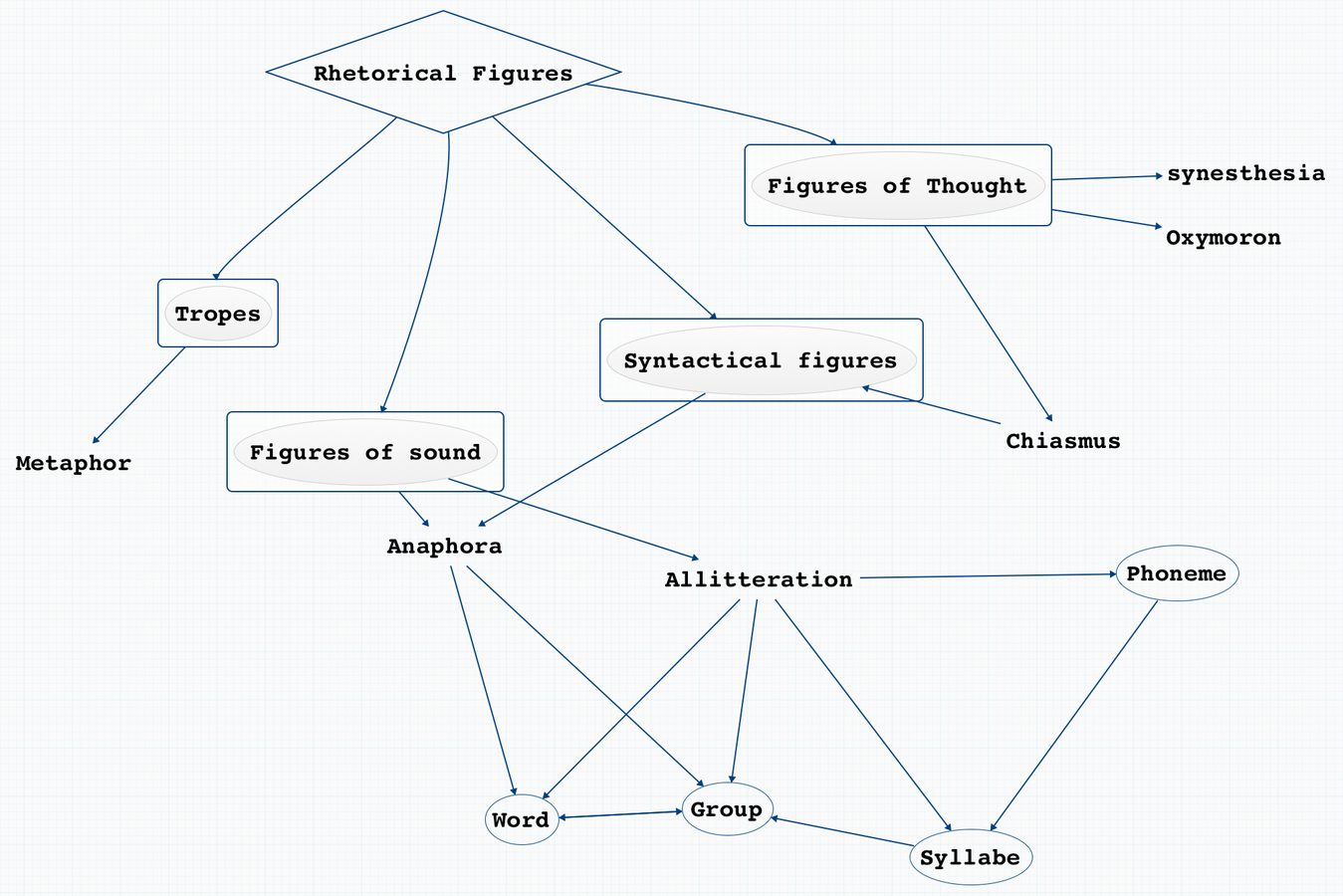
An ontology for digital rhetoric analysis.
Tropes
Example:
link -
<?xml version="1.0"?>
<rdf:RDF xmlns:rdf="http://www.w3.org/1999/02/22-rdf-syntax-ns#"
xmlns:dc="http://purl.org/dc/elements/1.1/"
xmlns:raop="http://bakulf.github.io/raop/">
<raop:Simile>
<raop:comparison rdf:nodeID="nuvole"/>
<raop:interpretation>leggiadri e veloci come cavalli</raop:interpretation>
<raop:subject rdf:nodeID="cavalli"/>
<raop:sentence>
<raop:Group>
<raop:items>
<rdf:Seq>
<rdf:li><raop:Word rdf:nodeID="cavalli" raop:value="cavalli" /></rdf:li>
<rdf:li><raop:Word raop:value="sono " /></rdf:li>
<rdf:li><raop:Word raop:value="svelti" /></rdf:li>
<rdf:li><raop:Word raop:value="come" /></rdf:li>
<rdf:li><raop:Word raop:value="le" /></rdf:li>
<rdf:li><raop:Word rdf:nodeID="nuvole" raop:value="nuvole" /></rdf:li>
</rdf:Seq>
</raop:items>
</raop:Group>
</raop:sentence>
</raop:Simile>
</rdf:RDF>An ontology for digital rhetoric analysis.
-
addition (per adiectionem), by adding to the item one or more components;
-
omission (per detractionem), by removing one or more components from a given item;
-
transposition (per transmutationem), by changing the position of a component within the item. Also called transferring;
-
permutation (per immutationem), by replacing one or more components of the whole iotem from outside. Immutatio is also called anthisesis.
An ontology for digital rhetoric analysis.
La camera da letto di Attilio Bertolucci
(1984 - 1988)
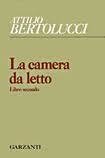
Bertolucci depicts this novel in verse using the lens of memory to present various themes and to structure the poem, thus creating a space in which oppositions and oxymorons can arise, fairytales and history play out alongside each other, in which dreams and reality, childhood and adulthood intermingle. La camera da letto was written over a period of nearly thirty years
An ontology for digital rhetoric analysis.
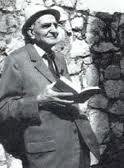
La camera da letto consists of forty-six chapters, divided in two volumes, each volume consisting of three sections.
The first volume of La camera da letto begins with a oxymoronic title Romanzo famigliare (al modo antico) – composed of eleven chapters – and it portrays Bertolucci’s family history from the late sixteenth century.
An ontology for digital rhetoric analysis.

- hypothesis-testing
- computational modeling
- quantitative analysis.
Text Analysis
Some outputs:
Graphic

An ontology for digital rhetoric analysis.
Text
| Rhetorical figure | Chapter | |
|---|---|---|
| Oxymoron | 24 | 1, 3, 4, 5, 6, 7, 8, 10, 12, 14, 15 17, 19, 23, 24, 26, 27, 28 , 29, 30, 33, 36, 37, 39, 40, 42, 44 |
| Synesthesia | 15 | 12, 14, 15 17, 19, 23, 24, 26, 27, 28 |
| Chiasmus | 10 | 12, 14, 15 17, 19, 23, 24, 26, |
| Anaphora | 10 | 1, 3, 4, 5, 6, 7, 8, 10, 12, 14, 15 17, 19, 23, 24 |
| Allitteration | 19 | 8, 10, 12, 14, 15 17, 19, 23, 24, 26, 27, 28 , 29, 30, 33, 36, 37, 39, 40, 42, 44 |
| Epanalepsis | 12 |
An ontology for digital rhetoric analysis.
Text
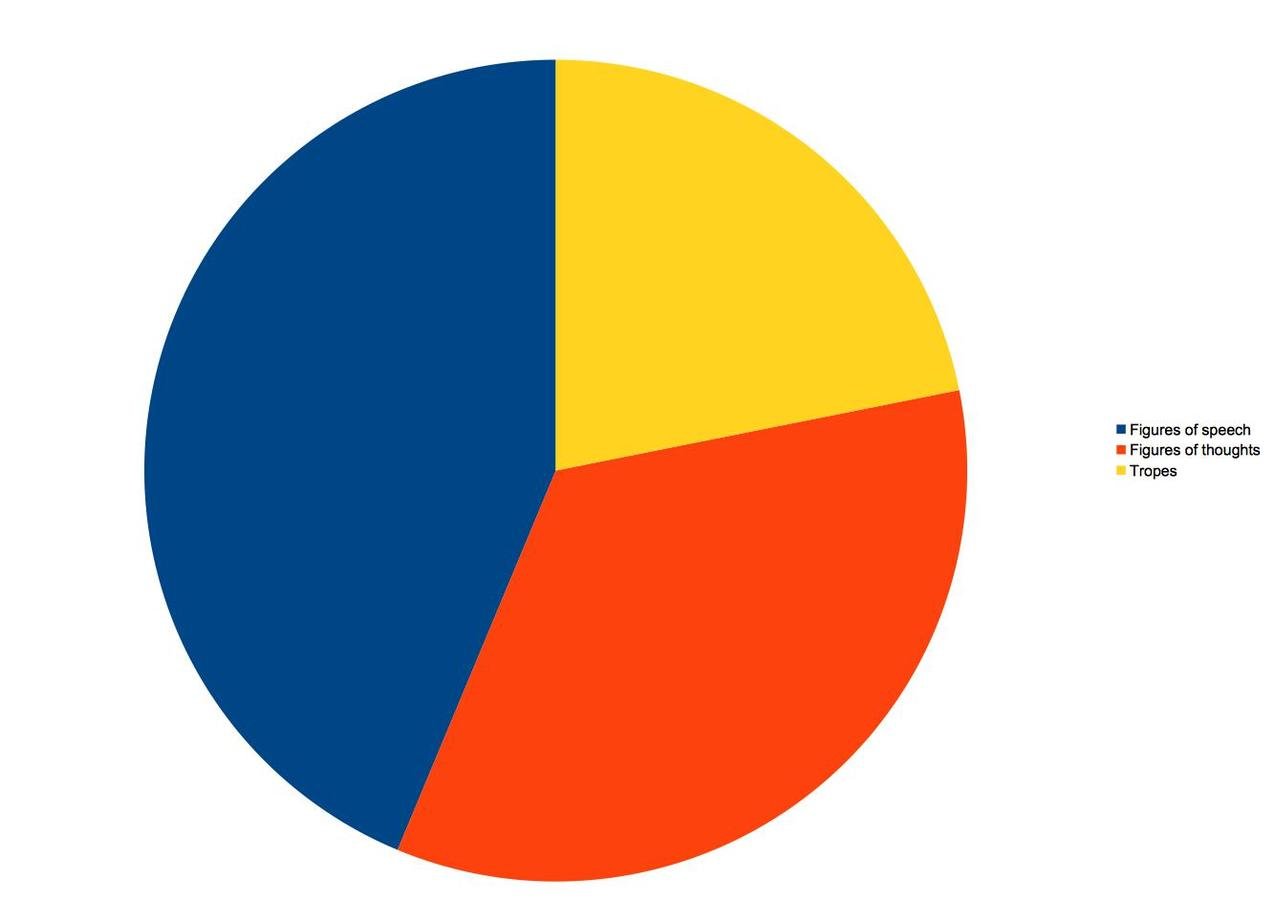
subject/predicate, noun/attribute, verb/adverb
Oxymoron to disentangle:
«Tenebrore accecante», «tremando nel calore», «innocente impudicizia», «dolcissima agonia», «dolcezza spossata», «l’imprevisto previsto»; «amaramente gioiosa», «immobili fuggiaschi», «silenzio violento», «gioia quasi dolorosa», «allegra minaccia», «tempestosa dolcezza», «amara felicità», «allegria disperata», «dolcemente forte»,
«umidi di sole», «sole lacrimoso»
synesthesia
«sole... che suona»,
An ontology for digital rhetoric analysis.
Analysis and modelling are rightly considered to be at the hearth of Digital Humanities; and they are fundamental components of scholarly editing, whether digital or not. As a matter of fact modelling is at the core of any epistemological activity relative to a particular object or a set of oblects in order to be analysed and understood. (Pierazzo, 2015)
http://bakulf.github.io/raop/
Many Thanks!

